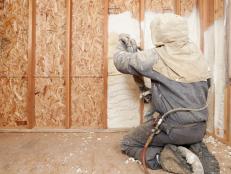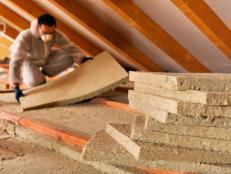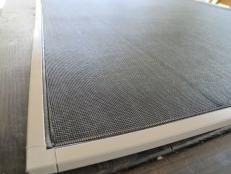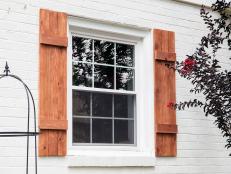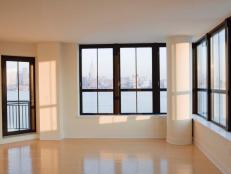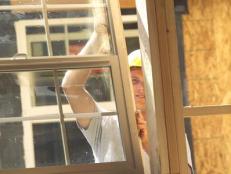Acoustic Windows
The unit used to measure sound is the decibel (dB). The human ear can normally detect a change in sound volume as slight as 1 dB. To understand what this means, here are a few examples of decibel levels:
- Human whisper: 20 dB
- Normal conversation: 60 dB
- Leaf blowers: 100 dB
- 747 jet take-off: 125 dB
- Your teenager's music: 150 dB
Prolonged exposure to sound levels over 85 dB can cause serious damage to your hearing, and levels over 120 dB can actually be painful.
Many homes today are built with basic, unlaminated, double-paned windows. The problem with these windows is that sound passes through them very easily. The two pieces of glass in traditional double-paned windows vibrate together to act like a tuning fork. This generates vibrations which then become sound, so the more a window vibrates, the more it allows sound to pass through it and into the home.
Many of the windows offered today can help reduce the amount of sound that enters the home. These "acoustic windows" can make a big difference in keeping the inside of the house quieter.
Use good judgment when selecting windows to reduce noise. Because so many windows are promoted as reducing noise, follow the best practice for selecting an acoustic window by learning as much as possible about each of the different types of windows and their sound reduction properties.
Here are some important facts to consider:
- The noise reduction produced by a window is proportional to the window's mass, area, limpness (the stiffness of the glass) and airtightness.
- Generally, the thicker the glass and the more panes in a window, the better the window will be for eliminating sound transmissions.
- Laminated glass is highly effective in reducing sound transmission.
- A thinner laminated glass pane eliminates as much sound as a much thicker, unlaminated pane.
- The larger the space between panes, the less sound a window will allow through it.
- Aspects of acoustic window frames should also be considered. The further the glass surface area extends into the frame, the better.
- Ideally, the frames should have the same surface weight as the glass.
- Sealing all glazing components and frame joints is crucial for eliminating sound leakage.
- When choosing an acoustic window, ask the manufacturer the number of decibels their products reduce.
In today's market, triple-pane windows will go a long way to reduce the amount of sound that enters a home, but proper installation is also very important. To learn more about the best practices in window installation, visit the Building America website or click here.






